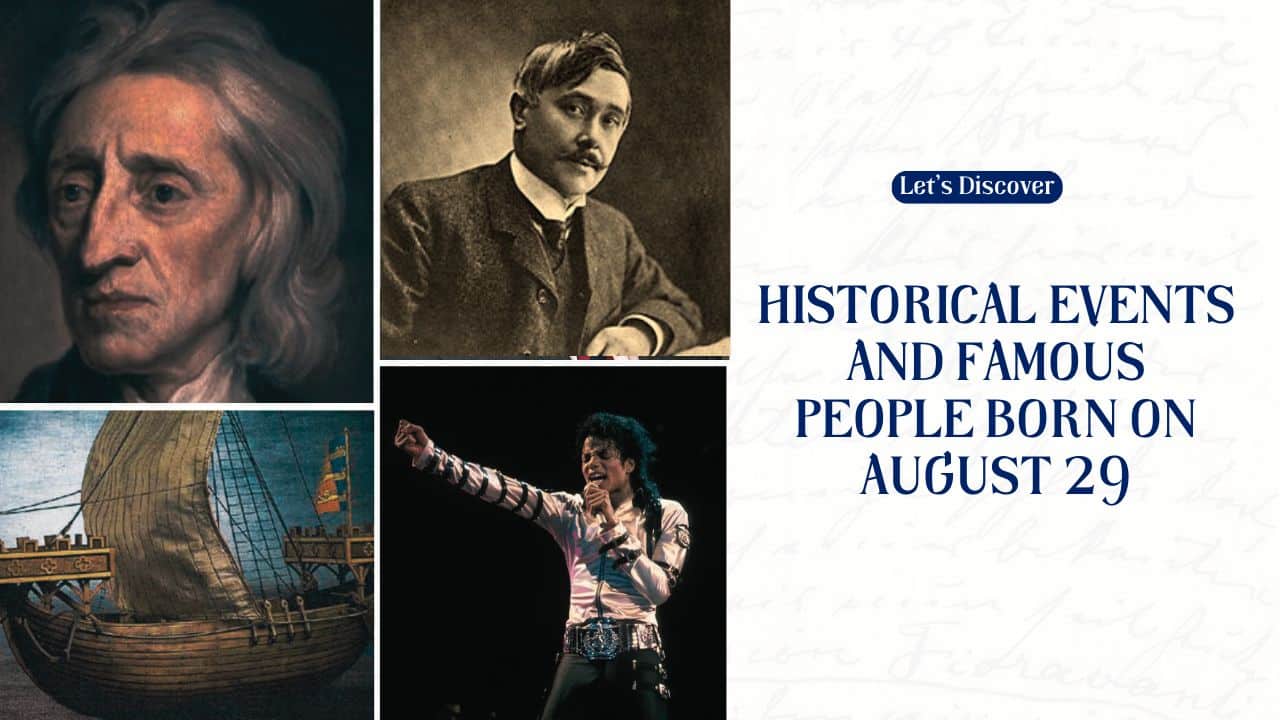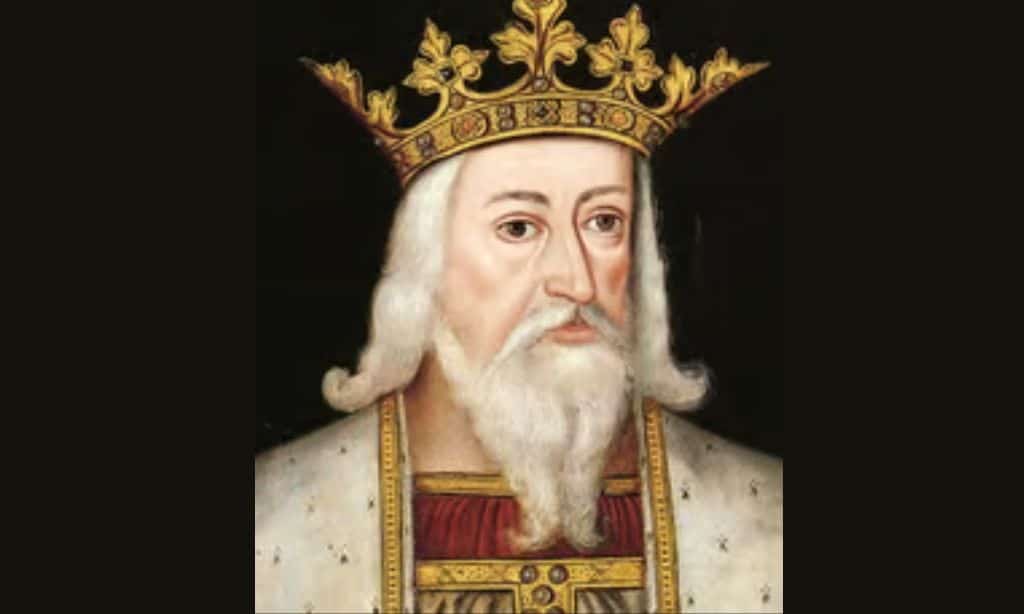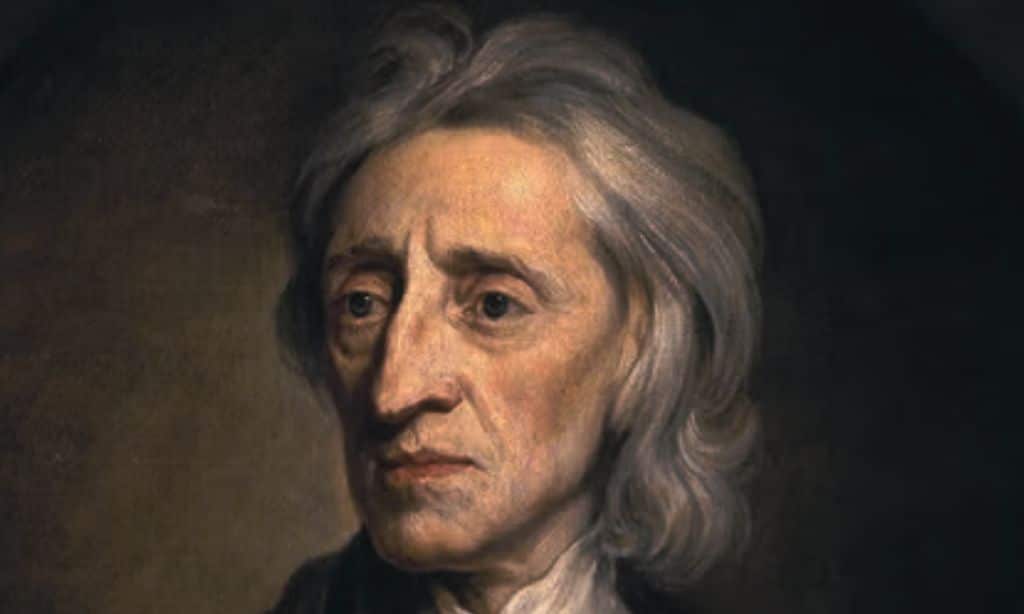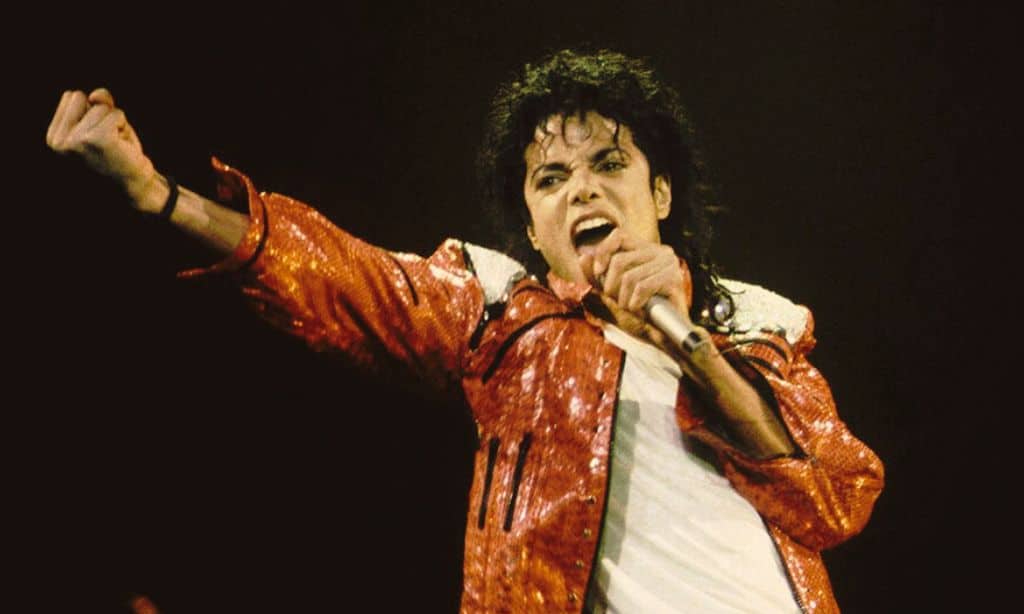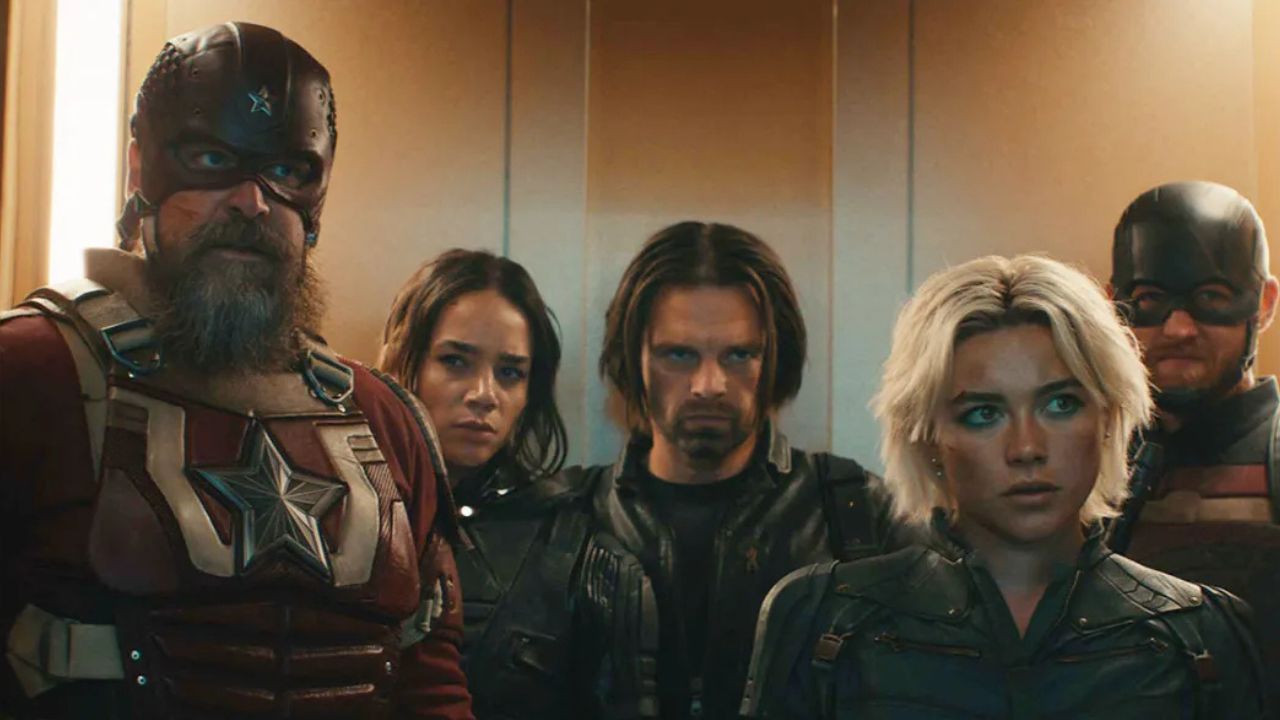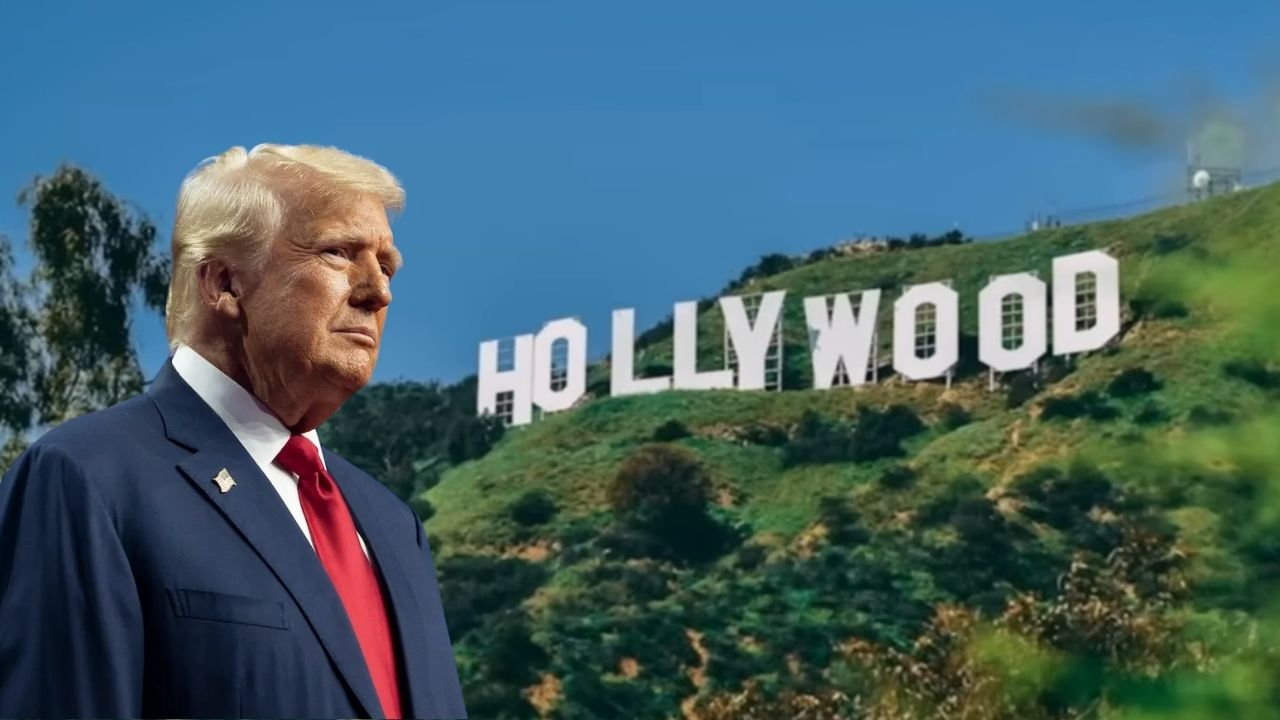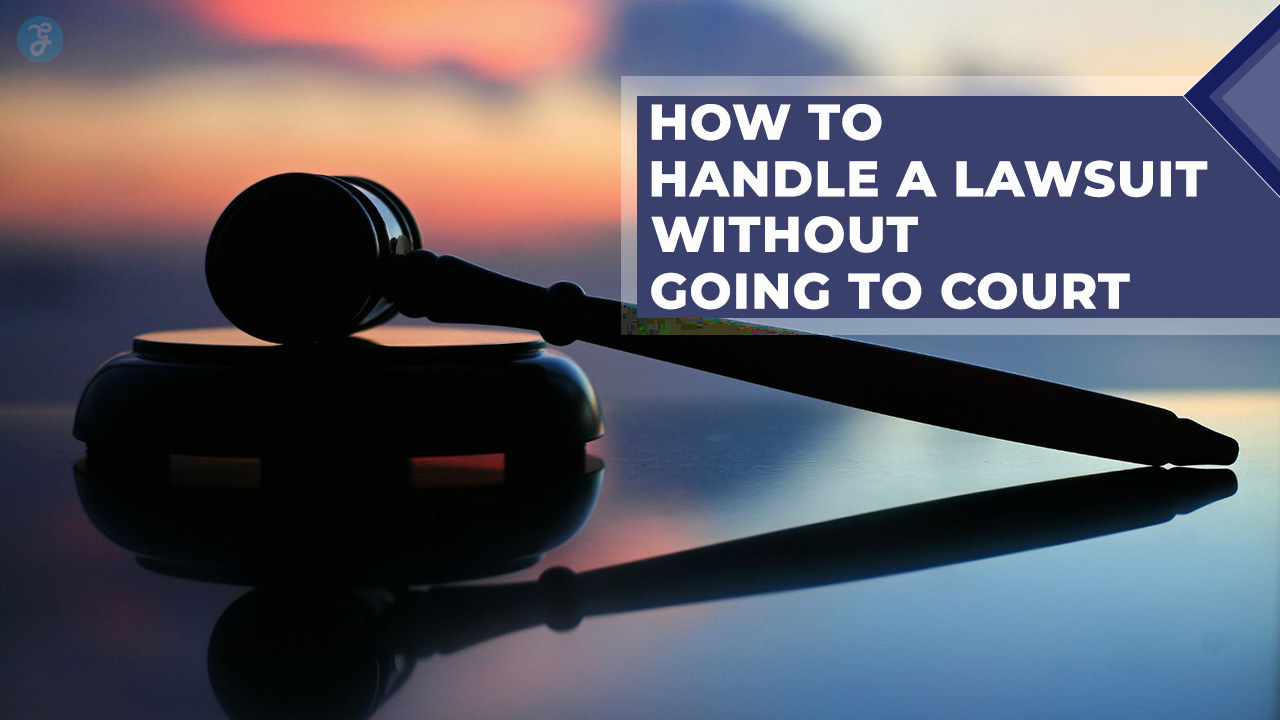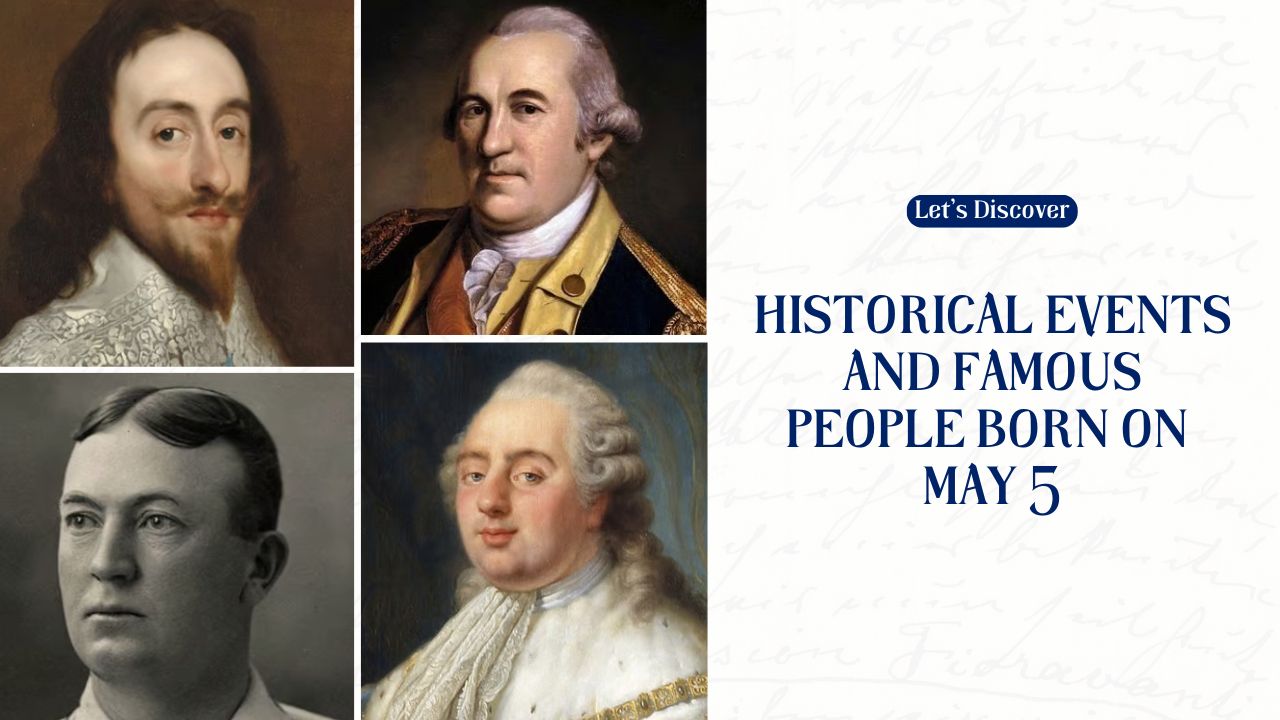August 29 is a day that has seen many important events in history. It’s also the birthday of several famous people who have made big changes in the world. From sea battles to big explosions, and from thinkers to movie stars, August 29 has a lot to teach us. This article will look at some key events that happened on this day and some important people born on it. We’ll see how August 29 has helped shape our world in different ways.
Historical Events on August 29
Battle of Winchelsea (1350)
On August 29, 1350, a big sea battle took place near Winchelsea, a town on the south coast of England. This battle is also known as “Les Espagnols sur Mer,” which means “The Spaniards on the Sea” in French.
King Edward III of England led his navy against a fleet from Castile, which is now part of Spain. The Castilian fleet had 40 ships. They had been attacking English merchant ships, so King Edward III decided to stop them.
The English won the battle. This was important because it helped England keep control of the English Channel. The Channel is the water between England and France. Controlling it was very important for trade and for protecting England from attacks.
This battle showed that England was becoming stronger at sea. It helped set the stage for England to become a powerful naval country in later years.
Burial of Atahualpa (1533)
Atahualpa was the last emperor of the Inca Empire. The Inca Empire was a big and powerful kingdom in South America. On August 29, 1533, Atahualpa is thought to have been buried.
Atahualpa’s story is a sad one. He was captured by Spanish explorers led by Francisco Pizarro. Even though the Incas gave the Spanish a room full of gold and silver to free Atahualpa, the Spanish killed him anyway.
We’re not sure exactly where Atahualpa was buried. Some people think it was in northern Peru, while others believe it was in Ecuador. The mystery of his burial place shows how much was lost when the Spanish conquered the Inca Empire.
Atahualpa’s death marked the end of the Inca Empire. This was a big change in the history of South America and the world.
First Electric Transformer (1831)
On August 29, 1831, Michael Faraday showed the world the first electric transformer. Faraday was a scientist from England who made many important discoveries about electricity and magnets.
A transformer is a machine that changes the voltage of electricity. Voltage is like the pressure of electricity. Faraday’s transformer was simple, but it was the start of something big.
Faraday’s work helped lead to the electrical world we live in today. Without transformers, we couldn’t send electricity over long distances. This means we wouldn’t have the electric power grid that gives us electricity in our homes and schools.
Faraday’s demonstration on this day was a key moment in the history of technology. It helped start the age of electricity that changed the world.
Krakatoa: The World’s Mightiest Explosion (1883)
On August 26, 1883, a volcano called Krakatoa in Indonesia exploded. It was one of the biggest explosions ever recorded. The explosion was so loud that people heard it 3,000 miles away.
On August 29, three days after the explosion, something amazing happened. Big waves created by the explosion reached the English Channel. The English Channel is more than 11,000 kilometers away from Krakatoa!
These waves are called seismic sea waves or tsunamis. They traveled across the Indian Ocean, around Africa, and up into the Atlantic Ocean. Scientists were amazed that the waves could travel so far.
The Krakatoa explosion and its effects helped scientists learn more about volcanoes, the oceans, and the atmosphere. It showed how events in one part of the world can affect places far away.
Zeppelin Round-the-World Flight (1929)
On August 29, 1929, a big airship called the Graf Zeppelin finished flying around the world. This was the first time an airship had done this.
The Graf Zeppelin was like a giant balloon that could be steered. It was filled with gas that made it float, and it had engines to move it forward. The trip took 21 days, 7 hours, and 34 minutes.
This flight was a big deal in the history of air travel. It showed that aircraft could travel long distances and cross oceans. This helped pave the way for the global air travel we have today.
Famous Birthdays on August 29
John Locke (1632-1704)
John Locke was born on August 29, 1632, in England. He became one of the most important thinkers of his time.
Locke had many ideas that changed how people thought about government and human rights. He believed that all people are born with certain rights, like the right to life, liberty, and property. He also thought that governments should protect these rights.
Locke’s ideas helped shape modern democracy. They influenced the leaders who created the United States and other democratic countries. Because of this, he is often called the “Father of Liberalism.”
Here’s a brief biography of John Locke:
| Detail | Information |
|---|---|
| Born | August 29, 1632 |
| Place of Birth | Wrington, England |
| Died | October 28, 1704 |
| Known for | Political philosophy, theory of mind |
| Major works | “Two Treatises of Government”, “An Essay Concerning Human Understanding” |
| Influence | Enlightenment thinking, modern democracy |
Maurice Maeterlinck (1862-1949)
Maurice Maeterlinck was born on August 29, 1862, in Belgium. He was a writer who wrote plays, poems, and essays.
Maeterlinck’s writing often dealt with deep questions about life and death. He wrote in a style called Symbolism, which used symbols to express ideas and emotions.
One of his most famous works is a play called “The Blue Bird.” This play has been made into movies several times. In 1911, Maeterlinck won the Nobel Prize in Literature. This is one of the highest honors a writer can receive.
Here’s a brief biography of Maurice Maeterlinck:
| Detail | Information |
|---|---|
| Born | August 29, 1862 |
| Place of Birth | Ghent, Belgium |
| Died | May 6, 1949 |
| Known for | Symbolist plays and poetry |
| Major works | “The Blue Bird”, “Pelléas and Mélisande” |
| Awards | Nobel Prize in Literature (1911) |
Ingrid Bergman (1915-1982)
Ingrid Bergman was born on August 29, 1915, in Sweden. She became one of the most famous actresses in the world.
Bergman started her career in Swedish films, but soon moved to Hollywood. There, she starred in many famous movies. One of her most famous roles was in the movie “Casablanca.”
Bergman won many awards for her acting, including three Academy Awards (also called Oscars). She was known for her natural acting style and her beauty. Many people consider her one of the greatest actresses of all time.
Here’s a brief biography of Ingrid Bergman:
| Detail | Information |
|---|---|
| Born | August 29, 1915 |
| Place of Birth | Stockholm, Sweden |
| Died | August 29, 1982 |
| Known for | Acting in Hollywood and European films |
| Major works | “Casablanca”, “Gaslight”, “Anastasia” |
| Awards | Three Academy Awards, four Golden Globes |
Richard Attenborough (1923-2014)
Richard Attenborough was born on August 29, 1923, in England. He was both an actor and a director.
As an actor, Attenborough appeared in many famous films. Some people might remember him as the owner of the dinosaur park in “Jurassic Park.”
Later in his career, Attenborough became a director. He made several important films, including “Gandhi,” which won eight Academy Awards. Attenborough was also known for his work in British theater and television.
Here’s a brief biography of Richard Attenborough:
| Detail | Information |
|---|---|
| Born | August 29, 1923 |
| Place of Birth | Cambridge, England |
| Died | August 24, 2014 |
| Known for | Acting and directing |
| Major works | Directed “Gandhi”, Acted in “Jurassic Park” |
| Awards | Two Academy Awards, four BAFTA Awards |
Michael Jackson (1958-2009)
Michael Jackson was born on August 29, 1958, in the United States. He became one of the most famous singers and dancers in the world.
Jackson started performing as a child with his brothers in a group called the Jackson 5. Later, he became a solo artist and released many hit songs and albums. His album “Thriller” is the best-selling album of all time.
Jackson was known for his unique dance moves, especially the “moonwalk.” He was called the “King of Pop” because he was so popular. His music and dancing influenced many other artists.
Here’s a brief biography of Michael Jackson:
| Detail | Information |
|---|---|
| Born | August 29, 1958 |
| Place of Birth | Gary, Indiana, USA |
| Died | June 25, 2009 |
| Known for | Singing, dancing, songwriting |
| Major works | Albums: “Thriller”, “Bad”, “Dangerous” |
| Awards | 13 Grammy Awards, 26 American Music Awards |
Takeaway
August 29 is a day that has seen many important events and the birth of several influential people. From sea battles to scientific discoveries, from philosophers to pop stars, this day has left its mark on history. By learning about these events and people, we can better understand how our world has been shaped. It reminds us that every day can be a day when history is made.
References
- Naval History and Heritage Command. (n.d.). Battle of Winchelsea, 29 August 1350.
- McEwan, G. F. (2006). The Incas: New Perspectives. ABC-CLIO.
- James, F. A. J. L. (2010). Michael Faraday: A Very Short Introduction. Oxford University Press.
- Winchester, S. (2003). Krakatoa: The Day the World Exploded. Harper Collins.
- Botting, D. (2001). Dr. Eckener’s Dream Machine: The Great Zeppelin and the Dawn of Air Travel. Henry Holt and Co.
- Uzgalis, W. (2020). John Locke. Stanford Encyclopedia of Philosophy.
- Nobel Prize. (n.d.). Maurice Maeterlinck – Facts.
- Leaming, B. (1986). Ingrid Bergman: An Intimate Portrait. Fawcett Books.
- Attenborough, R. (2008). Entirely Up to You, Darling. Hutchinson.
- Taraborrelli, J. R. (2009). Michael Jackson: The Magic, The Madness, The Whole Story. Pan Books.


